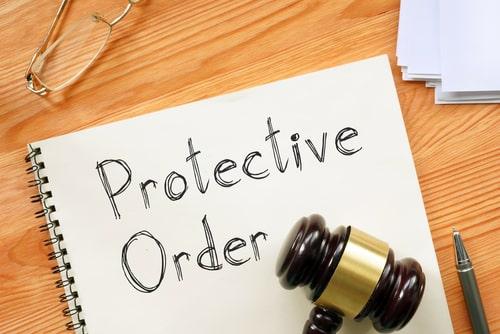What Are the Penalties for Violating a Protective Order in Texas?
 There are multiple reasons why Texas courts may issue a protective order (commonly known as a restraining order). These orders are often put in place in cases involving allegations of family violence, although they may also be used in situations where a person is accused of offenses such as sexual assault or harassment. In cases where a protective order has been issued, a person will be required to follow its terms, even if they believe that it was based on false accusations. Violating a protective order can result in serious criminal penalties, and anyone who is subject to this type of order will need to work with a criminal defense lawyer to determine their legal options.
There are multiple reasons why Texas courts may issue a protective order (commonly known as a restraining order). These orders are often put in place in cases involving allegations of family violence, although they may also be used in situations where a person is accused of offenses such as sexual assault or harassment. In cases where a protective order has been issued, a person will be required to follow its terms, even if they believe that it was based on false accusations. Violating a protective order can result in serious criminal penalties, and anyone who is subject to this type of order will need to work with a criminal defense lawyer to determine their legal options.
Consequences for Violating the Restrictions Put in Place by a Protective Order
A protective order will generally prohibit a person from taking any illegal actions against their alleged victims, such as committing family violence or engaging in behavior that could be considered harassment. Numerous other restrictions may be put in place, and a person could be charged with violating a protective order if they:
-
Communicate with their alleged victim or other family members included in the order in a manner that is considered threatening or harassing. In many cases, a protective order will prohibit a person from attempting to communicate with family members such as their spouse or children in any way. A violation may involve directly attempting to contact someone in person, over the phone, or via email or text message, as well as sending messages through other parties. Depending on the requirements put in place by the court, a person may only be able to communicate with their family members by sending messages through an attorney or another person appointed by the court.
-
Go to certain locations. A protective order may specify places where a person is prohibited from going, such as the residence they share with their spouse or partner, a person's workplace, or children's schools or childcare facilities. Entering these locations or even going near them may constitute a violation.
-
Possess a firearm. A protective order will usually require a person to turn over any firearms they own, and it will prohibit them from using or possessing firearms while the order is in effect.
-
Harm pets. Any attempts to harm, threaten, or interfere with pets owned by a person or family or any companion or service animal may constitute a violation of a protective order. This may include any attempts to take a family pet away from a couple's shared home or otherwise interfere in the care or custody of an animal.
In most cases, a person who violates a protective order may be charged with a Class A misdemeanor, and if they are convicted, they may face a sentence of up to one year in jail and/or a fine of up to $4,000. However, a violation of a protective order that was put in place after a conviction for sexual assault, sexual abuse, or stalking may be charged as a state jail felony, and a person may be sentenced to between six months and two years in prison and/or fined up to $10,000. If a person had previously been convicted of violating a protective order on two separate occasions, or if their violation of a protective order involved assault or stalking, they may be charged with a third-degree felony, and if they are convicted, they may be sentenced to between two and ten years in prison and fined up to $10,000.
Contact Our Fort Worth Protective Order Violation Lawyer
If you have been accused of violating a protective order, it is important to understand the serious consequences you may be facing. At The Dameron Law Firm, our Tarrant County criminal defense attorney can help you navigate the criminal justice system and fight for a favorable outcome in your case. To schedule a free consultation, call us now at 817-222-0624.
Sources:
https://statutes.capitol.texas.gov/Docs/FA/htm/FA.85.htm
https://statutes.capitol.texas.gov/Docs/PE/htm/PE.25.htm
https://statutes.capitol.texas.gov/Docs/CR/htm/CR.7B.htm#7B

 817-222-0624
817-222-0624







